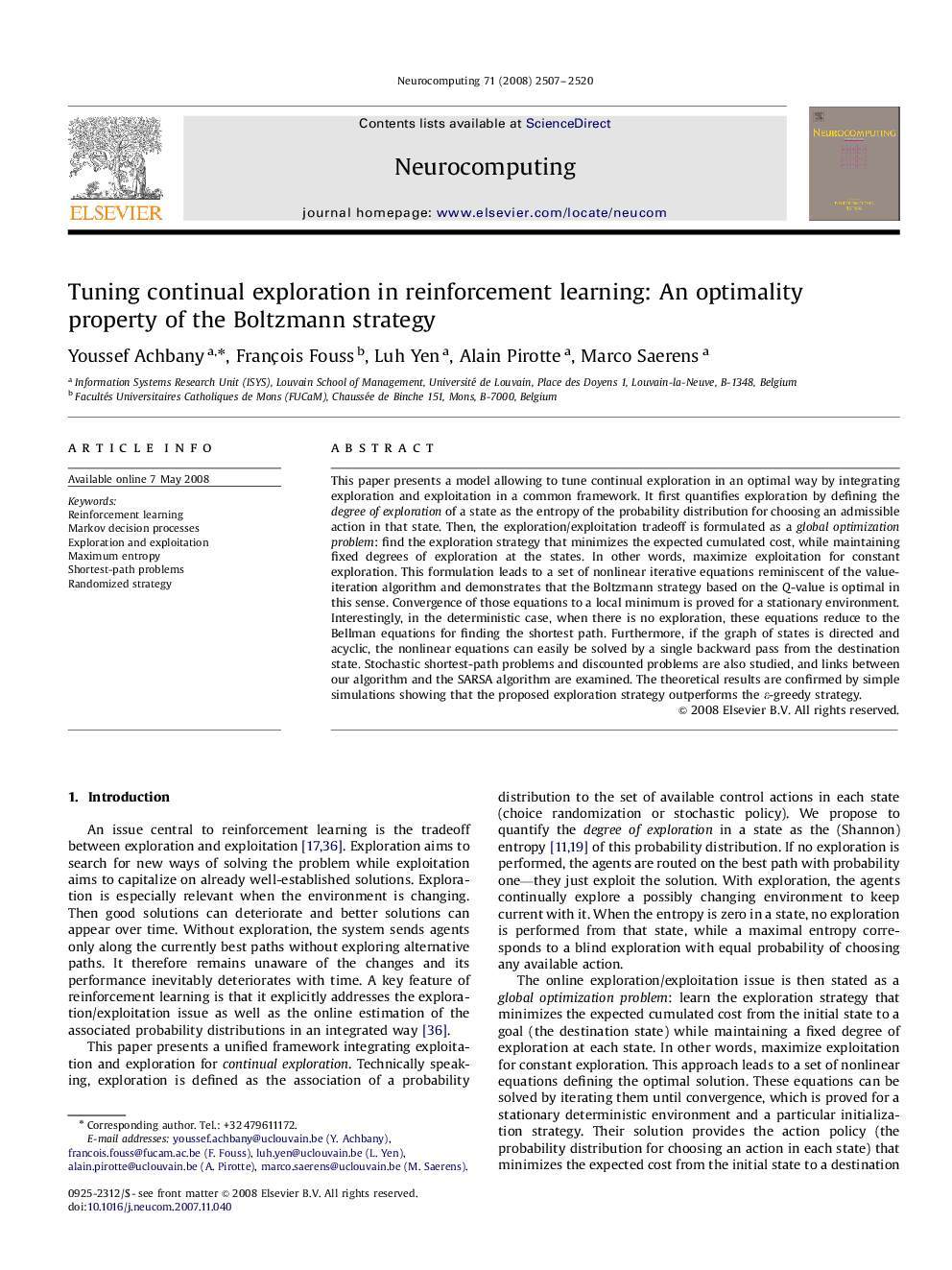| Article ID | Journal | Published Year | Pages | File Type |
|---|---|---|---|---|
| 409064 | Neurocomputing | 2008 | 14 Pages |
This paper presents a model allowing to tune continual exploration in an optimal way by integrating exploration and exploitation in a common framework. It first quantifies exploration by defining the degree of exploration of a state as the entropy of the probability distribution for choosing an admissible action in that state. Then, the exploration/exploitation tradeoff is formulated as a global optimization problem: find the exploration strategy that minimizes the expected cumulated cost, while maintaining fixed degrees of exploration at the states. In other words, maximize exploitation for constant exploration. This formulation leads to a set of nonlinear iterative equations reminiscent of the value-iteration algorithm and demonstrates that the Boltzmann strategy based on the Q -value is optimal in this sense. Convergence of those equations to a local minimum is proved for a stationary environment. Interestingly, in the deterministic case, when there is no exploration, these equations reduce to the Bellman equations for finding the shortest path. Furthermore, if the graph of states is directed and acyclic, the nonlinear equations can easily be solved by a single backward pass from the destination state. Stochastic shortest-path problems and discounted problems are also studied, and links between our algorithm and the SARSA algorithm are examined. The theoretical results are confirmed by simple simulations showing that the proposed exploration strategy outperforms the εε-greedy strategy.
